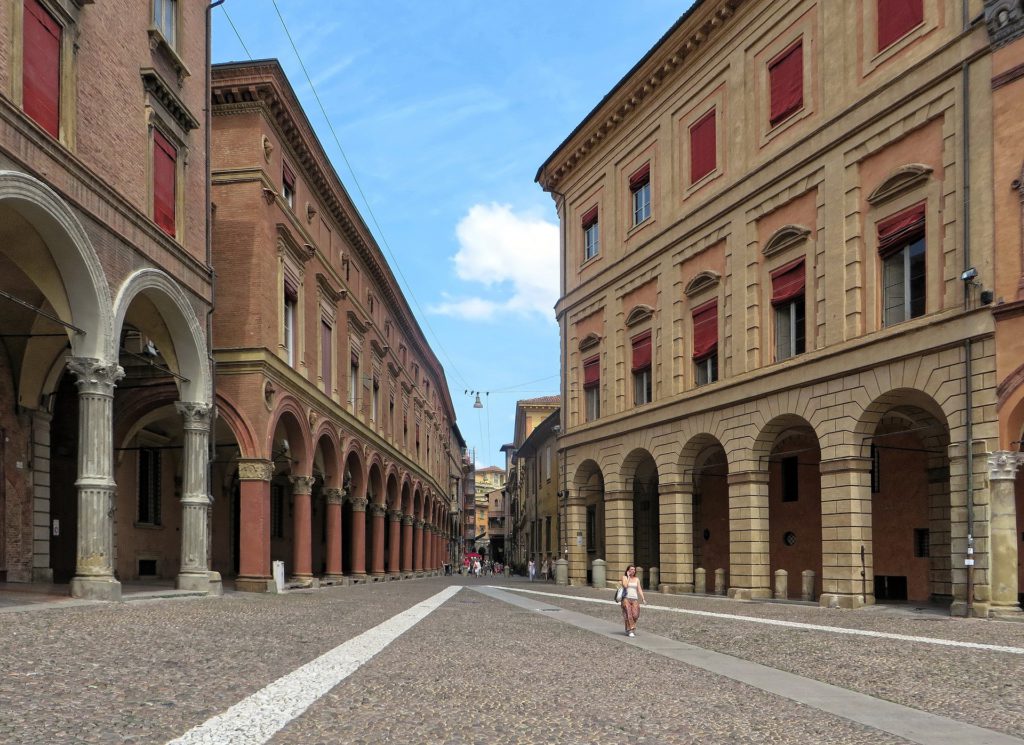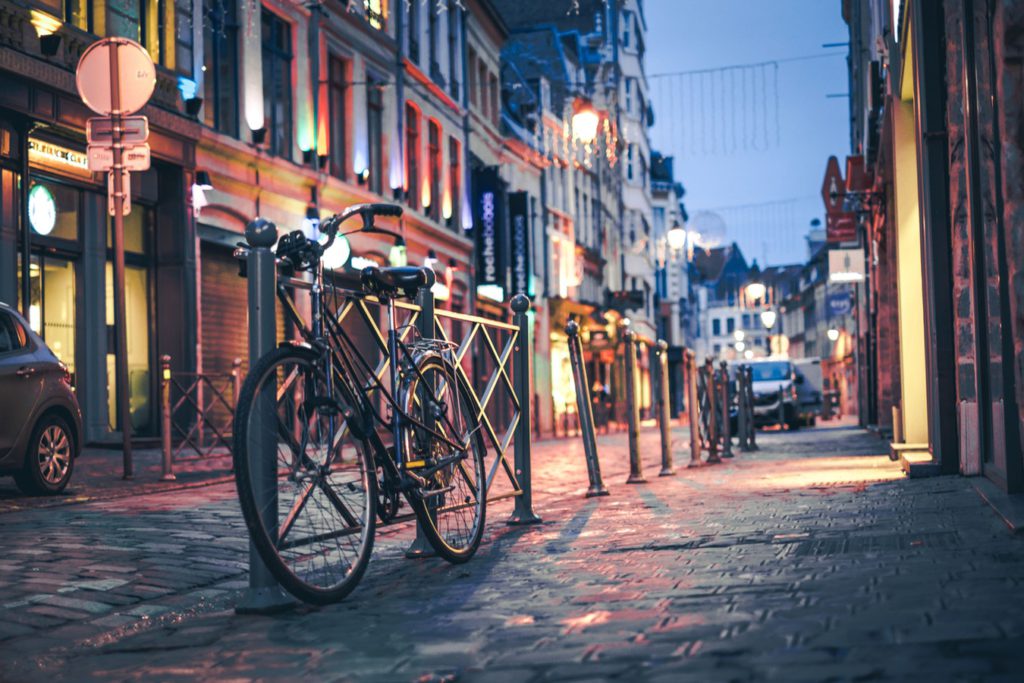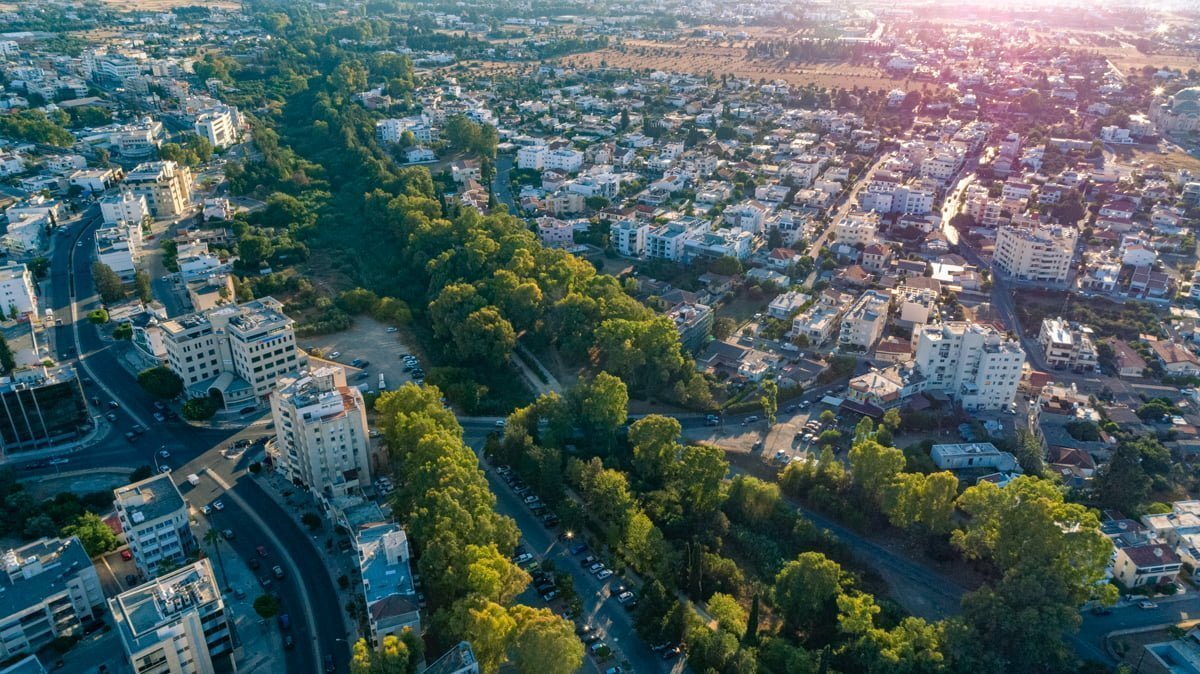Celebrating youth climate changemakers on World Cities Day 2024
As the 2024 edition of Urban October draws to an end, the observance of World Cities Day on Thursday, 31 October circles back to the pivotal role that youth can and should have in shaping a better future for our cities. It is the perfect occasion to give resonance to the youth-centred initiatives that some of our members have been working on.
 If September is the month for letting go of summer numbness and setting new goals (something that was done in New York at the Summit for the Future), October is the month to start working on them. The UN Habitat-sponsored initiative of Urban October is a great framework within which cities worldwide can scale up and promote their work towards a better urban future.
If September is the month for letting go of summer numbness and setting new goals (something that was done in New York at the Summit for the Future), October is the month to start working on them. The UN Habitat-sponsored initiative of Urban October is a great framework within which cities worldwide can scale up and promote their work towards a better urban future.
The vast majority of the global population is already concentrated in cities, and this share will only increase in the next decades, making urban centres hotspots of challenges, but also copious pools of transformative power. The kind of power that must be leveraged to achieve sustainable development goals—including the transformation of mobility systems.
This year's edition of Urban October has been all about youth as the bearers of such power and key political allies to advance climate action. On 7 October we celebrated World Habitat Day, spreading the word on the importance of actively engaging younger citizens in shaping the future of cities. An important takeaway from the observance is that listening to youth concerns and statements—while a good start—is not enough.
Engaging younger people means also making room for them in leadership and decision-making spaces where the course gets charted.
Youth leading climate action for cities
This eventful and insightful month-long observance wraps up on 31 October with World Cities Day; it does so by precisely focusing on the 'leading' part of the youth-engagement equation, embracing the theme 'Youth leading climate and local action for cities.' As experts, global roadmaps and common sense suggest, younger generations can contribute unparalleled creativity and freshness to decision-making processes in urban contexts, but there is more. They can also bring valuable skills to the table—something that tends to be overlooked in the often paternalistic and change-avert mindset dominating chambres of power at all levels.
 World Cities Day aims to highlight the innovative ideas that are put forward by young people and explore ways to make them concrete, as well as draw attention to the youth-led initiatives that are already ripening in many cities around the globe.
World Cities Day aims to highlight the innovative ideas that are put forward by young people and explore ways to make them concrete, as well as draw attention to the youth-led initiatives that are already ripening in many cities around the globe.
From grassroots movements to innovation labs, young people are pushing for ambitious climate action. They are championing renewable energy integration, green jobs, clean public transportation, and climate adaptation measures—contributing to shape sustainable cities where everyone can thrive.
Message for World Cities Day from UN Secretary-General António Guterres
Between the great proposals that were presented at the UN Summit for the Future in late September (establishing youth councils, integrating youth representatives into local governments, and maintaining an ongoing dialogue between young people and policymakers) and the momentum generated by this Urban October edition, the hope is that attention will keep evolving into empowerment through opportunities and resources.
Some bold examples from POLIS members
As the leading European network of cities and regions, POLIS always welcomes the occasion of Urban October to amplify the important work that local authorities are doing to foster a more sustainable future. This year we are excited to explore how our members are engaging and empowering their youngest citizens in shaping a better urban future.
Youth cycling forward in Strovolos
Sustainable mobility stands as a top priority for Strovolos Municipality, Cyprus, and is strategically promoted among younger generations. Since 2009, the Municipality has been running a Bicycle Academy under its Open School Programme, offering separate groups for adults, teenagers, and children to cater for the specific needs of each age population.
This ongoing initiative keeps attracting numerous participants each year. The cycling training takes place in the Municipality’s facilities at Agios Demetrios Park and Pediaios Linear Park, guided by dedicated instructors with over 25 years of experience.
Engaging children in mapping and active mobility in Bologna

SPINE school labs in Bologna, Italy
City of Bologna
Within the framework of the Horizon Europe project SPINE, the City of Bologna is involving children of primary and secondary schools in the participative mapping and co-design of accessible wayfinding for three selected multimodal hubs. This initiative is a great example of designing through the eyes of kids to ensure our cities are more accessible to people of all ages.
Additionally, the community project 'Bologna a scuola si muove sostenibile' (Bologna sustainable mobility for schools, in English) supports the creation of walking and cycling buses ('bicibus' and 'pedibus') to reduce the use of cars in the school areas and on home-to-school routes.
These are groups of children who walk or cycle to school together, accompanied by parents or volunteers from local associations, who act as ‘drivers’. These living buses function just like a school bus, with a defined route and stops, fixed timetables and rules to follow. There can be several routes going to each school (mostly primary but kindergarten level can also be involved), which ensures that the initiative is as inclusive as possible. In this framework, students, families and schools join forces to shift mobility habits away from car dependency and towards a wider acceptance of active mobility, enabling a real cultural change.
Researching and enhancing sustainable mobility for youth in Riga
In 2023, the Municipality of Riga launched a project funded and managed by the EIT Urban Mobility Network called ‘sCOOL2walk’. The project aimed to promote walkability and awareness of the surrounding urban environment among both school kids and the adults who were accompanying them on their way to school. The project was conducted also in Barcelona (Spain) and Siġġiewi (Malta). In Riga, the dedicated web application was tested in Secondary School No. 45 and the Riga Centre Humanitarian Secondary School.
Also concerning school commuting for kids, a ‘Safe Way to School Working Group’ gathering specialists from different departments and deputies of Riga City Municipality, was created by the local administration to address the issue of road safety. This year, the working group launched a survey (link in the original language) to explore the levels of perceived safety and convenience of scholars’ commuting. The survey involved Riga Secondary School No. 69, Riga Secondary School No. 45, Riga Elementary School No. 5 and Agenskalns Primary School, addressing pupils, parents, school principals and board, and school staff. The analysis of the survey results drove safety improvements in the infrastructure in the surroundings of Riga Elementary School No. 5.
In the field of academia, Riga Technical University created the 'Bus Baltica' programme which involved also students from Tartu and Kaunas in interactive workshops and co-creation sessions to identify potential solutions for the challenges posed by developing Rail Baltica, a major cross-national railway line that will connect Baltic capitals and major cities.
Lille Municipality's long-standing commitment to sustainable mobility for schools
As early as 2013, Lille Metropole has been working at a constant pace to boost active and sustainable mobility options for kids commuting to school every day.
This work has taken many shapes, from organising biking challenges and producing educational content to more structural interventions concerning fares and traffic management. In 2022 public transport services became free of charge for citizens under the age of 18 in the Metropolitan City of Lille and since last year the local administration has taken charge of buying and posing blocks to close street schools to road traffic.
This article saw the contribution of Maria Tsangari, Administrative Officer at Strovolos Municipality, Silvia Bartoloni, European Projects Office at Bologna Municipality, Project Manager in Transportation and Mobility Development at Riga Municipality, and Wim De Jaeger, Team Leader at the Permanent delegation of Métropole Européenne de Lille (MEL) to the European institutions.




